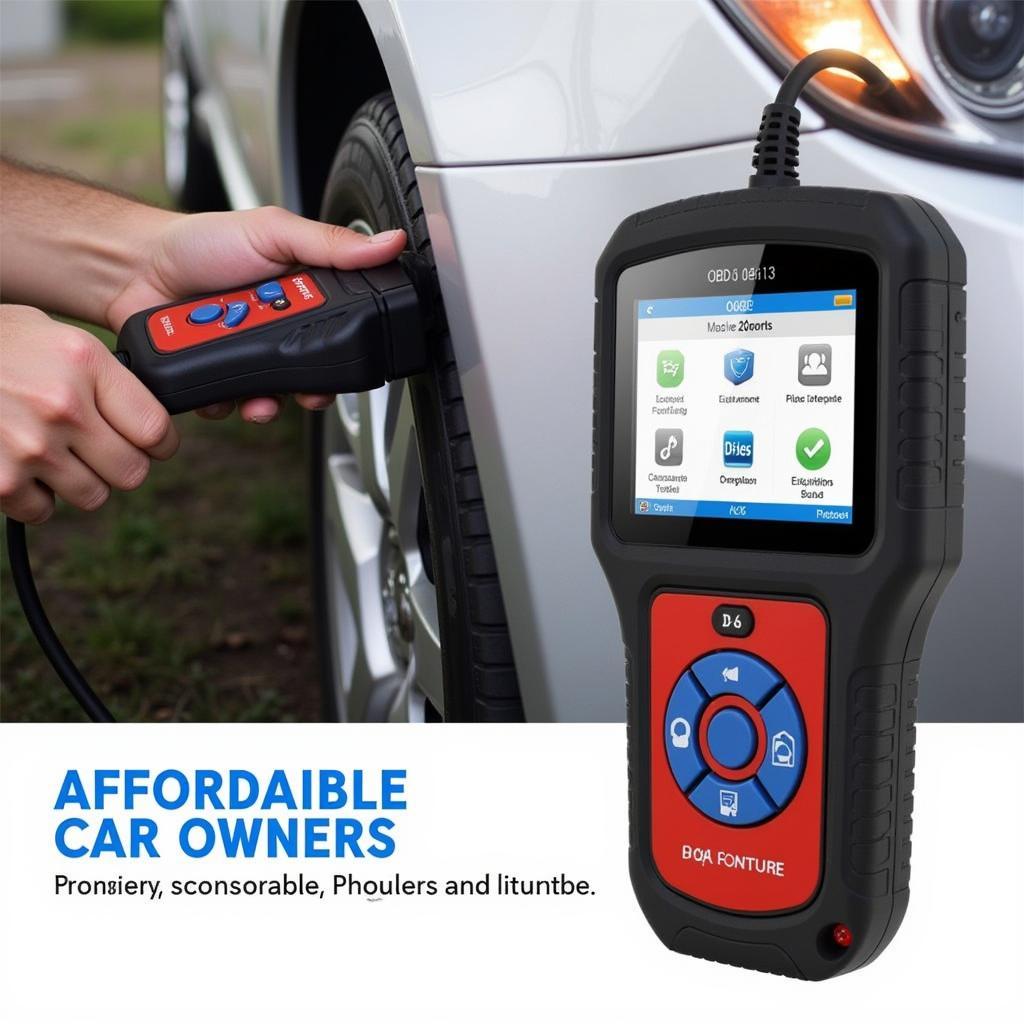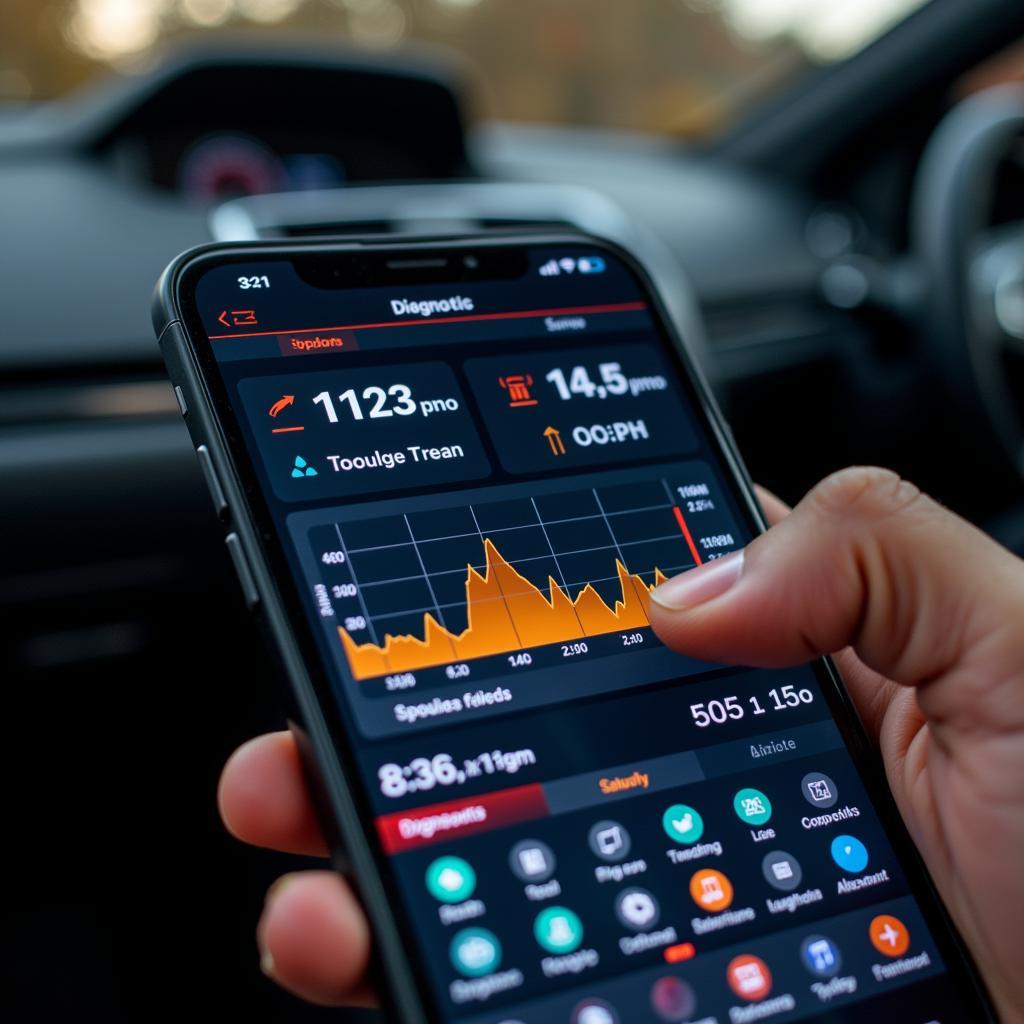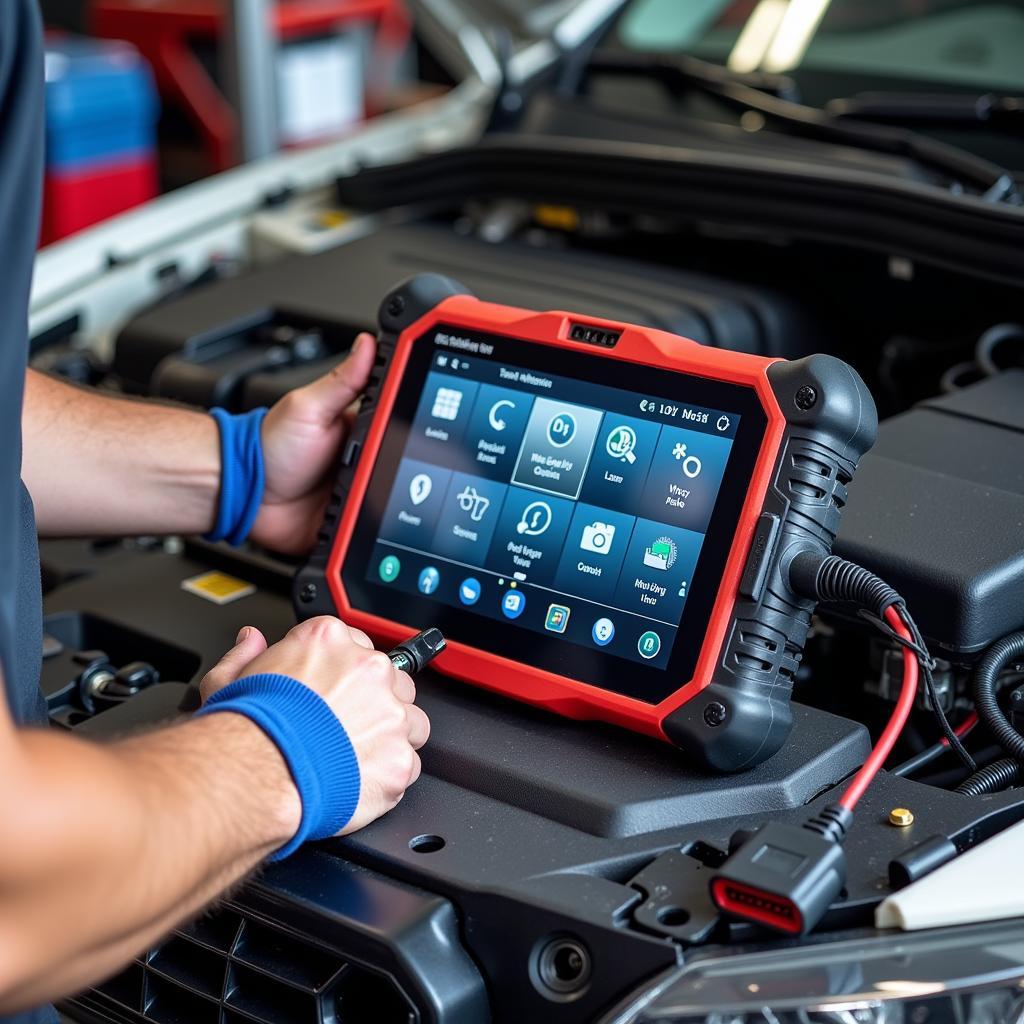Finding a reliable yet affordable car diagnostic can feel like searching for a needle in a haystack. You need answers, but you don’t want to empty your wallet in the process. The good news is that affordable car diagnostics are within reach, and understanding your options can save you a significant amount of money in the long run.
Navigating the World of Car Diagnostics
Car diagnostics have come a long way from the basic code readers of the past. Today’s technology offers a range of choices, from DIY tools to professional-grade scanners. Here’s a breakdown to help you find the best fit for your needs and budget:
1. OBD2 Scanners: Your Pocket-Friendly Ally
 Affordable OBD2 Scanner
Affordable OBD2 Scanner
For basic diagnostics, an OBD2 (On-Board Diagnostics) scanner is your go-to solution. These compact devices plug into your car’s OBD2 port (usually located under the dashboard) and can read and clear basic engine trouble codes. You can find OBD2 scanners at various price points, with basic models starting as low as $20.
Pros:
- Affordable and widely available
- Easy to use, even for beginners
- Can diagnose common engine problems
Cons:
- Limited functionality compared to advanced scanners
- May not be compatible with older car models
2. Mobile Apps: Diagnostics at Your Fingertips
 Car Diagnostic Mobile App
Car Diagnostic Mobile App
Believe it or not, your smartphone can be a powerful diagnostic tool. Numerous mobile apps work in conjunction with a Bluetooth-enabled OBD2 adapter, allowing you to access a wealth of data about your car’s health. These apps offer features like reading and clearing codes, viewing live sensor data, and even monitoring fuel economy.
Pros:
- Convenient and portable
- Offers more advanced features than basic OBD2 scanners
- Often more affordable than professional-grade scanners
Cons:
- Requires a compatible OBD2 adapter (usually sold separately)
- App functionality and accuracy can vary
3. Professional-Grade Scanners: The Comprehensive Solution
 Advanced Car Diagnostic Tool
Advanced Car Diagnostic Tool
When it comes to in-depth diagnostics and complex repairs, professional-grade scanners are the gold standard. These sophisticated tools, often used by mechanics and dealerships, offer comprehensive functionality, including:
- Reading and clearing manufacturer-specific codes
- Performing advanced diagnostics on various vehicle systems
- Programming and configuring modules
- Accessing live data streams
Pros:
- Unmatched diagnostic capabilities
- Provides access to detailed information and technical data
- Essential for complex repairs and module programming
Cons:
- Can be expensive, with prices ranging from hundreds to thousands of dollars
- Requires a certain level of technical expertise to use effectively
Finding the Right Balance: Cheap vs. Effective
While the allure of the cheapest option is undeniable, it’s crucial to strike a balance between cost and effectiveness. Consider these factors when deciding on your car diagnostic approach:
- Complexity of the Issue: For basic engine lights or warning messages, an OBD2 scanner or mobile app might suffice. However, for more complex issues like transmission problems or airbag lights, professional help is recommended.
- Your Comfort Level: If you’re comfortable tinkering with your car and have a basic understanding of mechanics, DIY options can be empowering. However, if you’re unsure, it’s best to leave it to the professionals.
- Long-Term Costs: While professional diagnostics might seem expensive upfront, they can save you money in the long run by preventing misdiagnoses and unnecessary repairs.
Conclusion
Finding a cheap diagnostic for your car doesn’t have to be a daunting task. By understanding your options and considering your specific needs, you can make informed decisions that keep both your car and your wallet happy. Remember, early detection and accurate diagnostics are key to preventing minor issues from escalating into major expenses down the road.

Leave a Reply